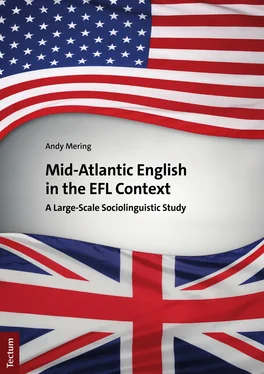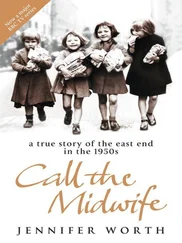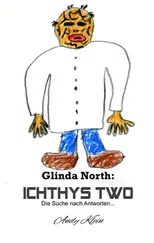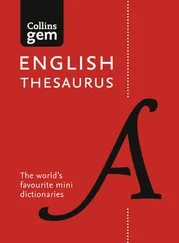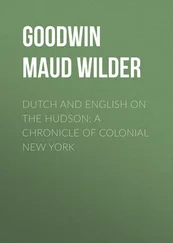Andy Mering
Mid-Atlantic English
in the EFL Context
Andy Mering
Mid-Atlantic English
in the EFL Context
A Large-Scale Sociolinguistic Study
Tectum Verlag
Andy Mering
Abteilung Anglistik
Pädagogische Hochschule Freiburg
Freiburg im Breisgau
Baden-Württemberg, Deutschland
Dissertation Pädagogische Hochschule Freiburg, 2021
Mid-Atlantic English – an Emerging Variety in the EFL Context?
A Sociolinguistic Study of the Role of British and American English in EFL Teaching
Von der Pädadogischen Hochschule Freiburg zur Erlangung des Grades eines Doktors der Philosophie (Dr. phil.) genehmigte Dissertation von
Andy Mering
aus Villars-sur-Glâne, Schweiz
Promotionsfach: Linguistik, Soziolinguistik, Didaktik der englischen Sprache
Erstgutachter: Prof. Dr. Matthias Hutz
Zweitgutachter: Prof’in Dr. Marita Schocker
Tag der mündlichen Prüfung: 05.07.2021
Die Deutsche Nationalbibliothek verzeichnet diese Publikation in der Deutschen Nationalbibliografie; detaillierte bibliografische Daten sind im Internet über http://dnb.d-nb.deabrufbar.
The Deutsche Nationalbibliothek lists this publication in the Deutsche Nationalbibliografie; detailed bibliographic data are available on the Internet at http://dnb.d-nb.de
ISBN 978-3-8288-4731-6 (Print) | 978-3-8288-7829-7 (ePDF) | 978-3-8288-7621-7 (ePub)
British Library Cataloguing-in-Publication Data
A catalogue record for this book is available from the British Library.
ISBN 978-3-8288-4565-7 (Print) | 978-3-8288-7620-0 (ePDF) | 978-3-8288-7830-3 (ePub)
Library of Congress Cataloging-in-Publication Data
Andy Mering
Mid-Atlantic English in the EFL Context
A Large-Scale Sociolinguistic Study
394 pp.
Includes bibliographic references.
ISBN 978-3-8288-4731-6 (Print) | 978-3-8288-7829-7 (ePDF) | 978-3-8288-7621-7 (ePub)
Umschlaggestaltung: Tectum Verlag, unter Verwendung des Bildes # 196988351 von STILLFX | www.shutterstock.com
1. Auflage 2022
© Nomos Verlagsgesellschaft, Baden-Baden 2022
Alle Rechte, auch die des Nachdrucks von Auszügen, der fotomechanischen Wiedergabe und der Übersetzung, vorbehalten
This work is subject to copyright. All rights reserved. No part of this publication may be reproduced or transmitted in any form or by any means, electronic or mechanical, including photocopying, recording, or any information storage or retrieval system, without prior permission in writing from the publishers. Under § 54 of the German Copyright Law where copies are made for other than private use a fee is payable to “Verwertungsgesellschaft Wort”, Munich.
No responsibility for loss caused to any individual or organisation acting on or refraining from action as a result of the material in this publication can be accepted by Nomos or the author.
Acknowledgements
While researching and writing the present doctoral thesis, I benefited from the assistance, guidance, and support of numerous people. First of all, I would like to express my special appreciation and thanks to my supervisor Professor Dr Matthias Hutz. He was an excellent mentor to me, who encouraged me to expand my research from various perspectives and gave me a great deal of leeway in implementing my research project. Thanks to his precious expert advice during useful long discussions and brainstorming sessions, I was able to grow as a researcher. Grateful thanks are also due to Professor Dr Marita Schocker, who accepted to be my second supervisor.
The present thesis would not have come to a successful completion without the invaluable and substantial help I received from my partner, Mr Hugo Lötscher. His moral support, constant encouragement, endless patience, his immense technical help and unwavering dedication to my large-scale, exciting project have been exemplary.
I am also deeply indebted to five extraordinary scholars, who devoted some of their precious time to answering my numerous queries throughout the whole drafting process of this dissertation: Professor Dr David Crystal, Professor Dr John Wells, Professor Dr David Britain, Professor Dr Mark Davies and Professor Dr Marko Modiano. Their expertise was also instrumental in gaining significant insight into my area of research.
In addition, I am very grateful to five upper secondary and university teachers who made their classes and seminars available for my empirical investigation: Professor Dr Matthias Hutz and Mr Rainer Jensen, Freiburg in Germany, Mr Patrick Jehle, Zurich, Mrs Gisela Burki and Mr Anthony Clark, Fribourg in Switzerland. Without their generosity, my project would not have come to fruition. I would also like to express my warmest and heartfelt thanks to the entire survey population, who accepted to participate in my extensive questionnaire-survey.
Nor shall I omit to mention my debt of gratitude to all those encounters with native and non-native speakers of English, who have always been an inspiration for me, linguistically and personally. Special thanks go out to Mrs Henriette Ludwig, Mr Michael Yates, Robert Mathews, Fred Maltby, Monique, Robin and Peter Schneider and Dr Robin Stockitt.
My gratitude also goes to my deceased parents, Dr Johannes Mering, MD, and Maria-Theresia Mering. I will be forever indebted to them as well as to my godmother Dr Wilhelmine Mering, MD, who was an extremely supportive mentor during my time as a school and university student.
Table of Contents
Acknowledgements Acknowledgements While researching and writing the present doctoral thesis, I benefited from the assistance, guidance, and support of numerous people. First of all, I would like to express my special appreciation and thanks to my supervisor Professor Dr Matthias Hutz. He was an excellent mentor to me, who encouraged me to expand my research from various perspectives and gave me a great deal of leeway in implementing my research project. Thanks to his precious expert advice during useful long discussions and brainstorming sessions, I was able to grow as a researcher. Grateful thanks are also due to Professor Dr Marita Schocker, who accepted to be my second supervisor. The present thesis would not have come to a successful completion without the invaluable and substantial help I received from my partner, Mr Hugo Lötscher. His moral support, constant encouragement, endless patience, his immense technical help and unwavering dedication to my large-scale, exciting project have been exemplary. I am also deeply indebted to five extraordinary scholars, who devoted some of their precious time to answering my numerous queries throughout the whole drafting process of this dissertation: Professor Dr David Crystal, Professor Dr John Wells, Professor Dr David Britain, Professor Dr Mark Davies and Professor Dr Marko Modiano. Their expertise was also instrumental in gaining significant insight into my area of research. In addition, I am very grateful to five upper secondary and university teachers who made their classes and seminars available for my empirical investigation: Professor Dr Matthias Hutz and Mr Rainer Jensen, Freiburg in Germany, Mr Patrick Jehle, Zurich, Mrs Gisela Burki and Mr Anthony Clark, Fribourg in Switzerland. Without their generosity, my project would not have come to fruition. I would also like to express my warmest and heartfelt thanks to the entire survey population, who accepted to participate in my extensive questionnaire-survey. Nor shall I omit to mention my debt of gratitude to all those encounters with native and non-native speakers of English, who have always been an inspiration for me, linguistically and personally. Special thanks go out to Mrs Henriette Ludwig, Mr Michael Yates, Robert Mathews, Fred Maltby, Monique, Robin and Peter Schneider and Dr Robin Stockitt. My gratitude also goes to my deceased parents, Dr Johannes Mering, MD, and Maria-Theresia Mering. I will be forever indebted to them as well as to my godmother Dr Wilhelmine Mering, MD, who was an extremely supportive mentor during my time as a school and university student.
Читать дальше
